
Keeping Yourself and Your Kids Safe and Healthy in the Pandemic: Tips for Judges, Legal...
Offers helpful questions about safety that judges, legal professionals, and court personnel can ask themselves regarding their work and their personal lives.
Children who come to the attention of the juvenile justice system are a challenging and underserved population. The National Child Traumatic Stress Network has developed resources to help juvenile justice professionals understand and provide trauma-focused services to these youth. These resources include tools and materials for building skills and increasing knowledge about childhood trauma to help judges, attorneys, law enforcement, probation officers, frontline residential staff, mental health personnel, and caregivers understand and respond to the needs of traumatized children. In addition to the NCTSN resources highlighted below, Justice System Professionals can learn more about creating trauma-informed Justice Systems in the Trauma-Informed Care section of this website.

Offers helpful questions about safety that judges, legal professionals, and court personnel can ask themselves regarding their work and their personal lives.
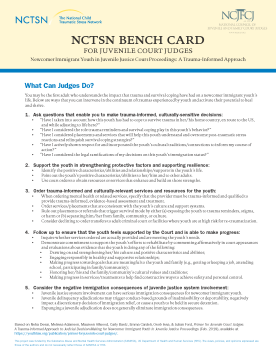
Provides judges with information they need to know about newcomer immigrant youth and trauma. This bench card offers useful questions and guidelines to help make decisions based on the specific needs of newcomer immigrant youth.
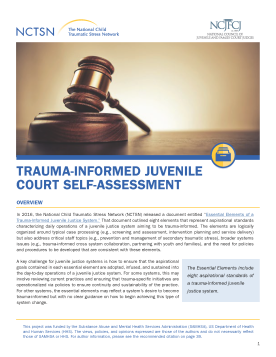
Provides a juvenile justice system with a framework to examine, review, and rate day-to-day operations with a set of benchmarks to evaluate to what extent court operations reflect the content, process, and systems-level procedures reflected in each essential element.
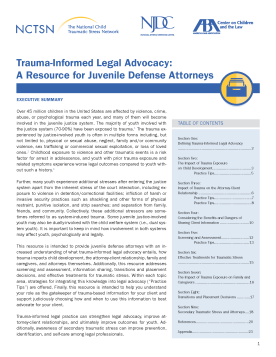
Provides juvenile defense attorneys with knowledge about trauma, the definition of trauma-informed legal advocacy, the impact of trauma exposure on child development, and effects of trauma on the attorney-client relationship.
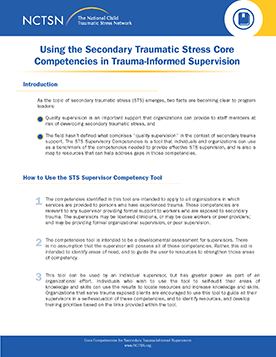
Discusses the importance of quality supervision that organizations can provide to staff members at risk for secondary traumatic stress (STS).
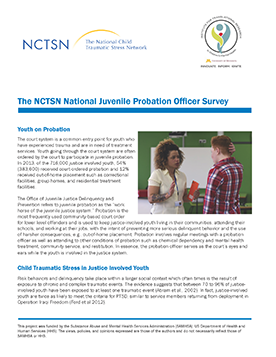
Details the results of a nationwide survey of probation officers. This survey looks at what probation officers know about trauma, how best to collaborate with them, and what products they would like to meet their needs with respect to trauma-informed practices.
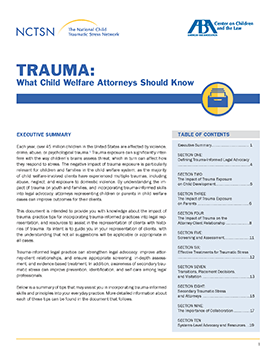
Provides child welfare attorneys with knowledge about trauma, practice tips for incorporating trauma-informed practices into legal representation, and resources to assist in the representation of clients with histories of trauma.

Delineates the path from complex trauma exposure to involvement in the juvenile justice system.

Provides information for staff in residential treatment centers on how to understand behavior through a trauma lens.
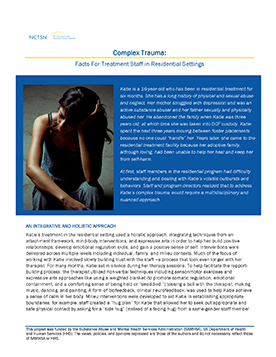
Details the importance of a holistic, multidisciplinary, multi-level approach to addressing the needs of youth with complex trauma in residential treatment settings.
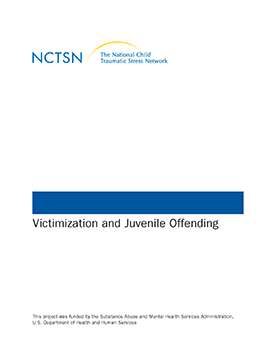
Discusses the correlation between victimization and juvenile offending.
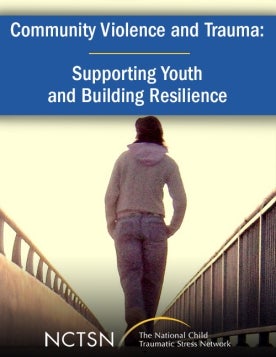
Explores both the historical and current causes for disproportionality.